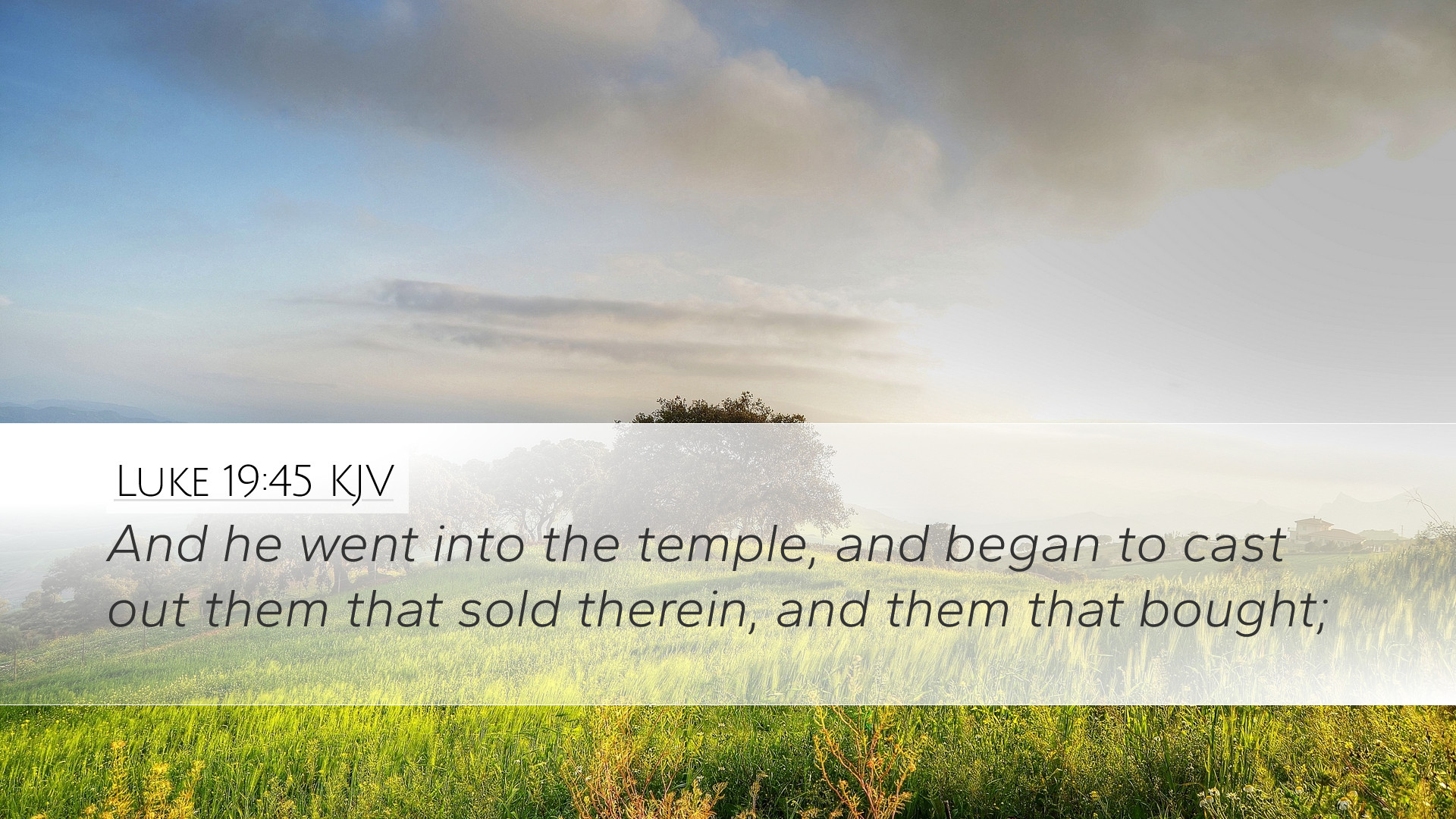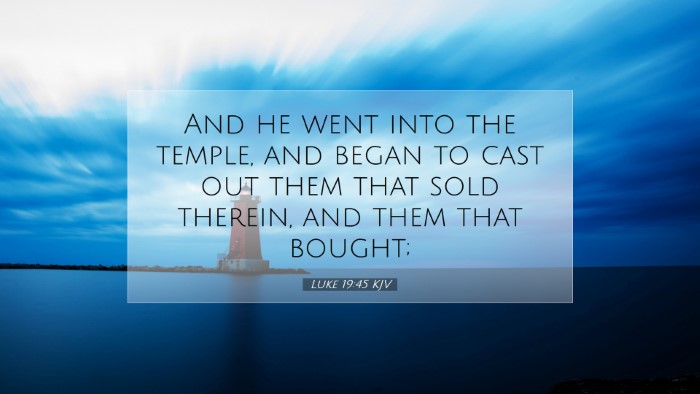Commentary on Luke 19:45
Luke 19:45 states: "And he went into the temple, and began to cast out them that sold therein, and them that bought;" This verse portrays a pivotal moment in the ministry of Jesus as He enters the temple of God, an act filled with deep theological significance and practical implications.
Context of the Passage
The temple in Jerusalem was not only a place of worship but also a focal point of Jewish identity and religious life. As Jesus enters, He confronts the corrupt practices that had overtaken a sacred space, which calls for a reflection on the nature of worship and the integrity of our devotion to God.
Insights from Matthew Henry
Matthew Henry emphasizes the zeal of Christ for God’s house, pointing out that Jesus’ actions in the temple were a fulfillment of prophecy as well as a demonstration of His authority. Henry notes:
- Zeal for God’s House: Henry writes about Christ's righteous indignation, reminding readers that Jesus is passionate about maintaining the sanctity of worship. It speaks to the need for purity within the church.
- Prophetic Fulfillment: The cleansing of the temple was prophesied in Zechariah 14:21, highlighting Jesus as the promised Messiah who fulfills Old Testament prophecies.
Insights from Albert Barnes
Albert Barnes provides a thorough examination of the societal implications surrounding this event. He asserts:
- Cultural Critique: Barnes discusses the commercial activities that had infiltrated the temple and the need for Jesus to reclaim the space for its intended purpose, which was to be a house of prayer.
- Jesus as Authority: He highlights Jesus’ authoritative stance against those who exploited worship for financial gain, which serves as a warning against allowing worldly desires to corrupt spiritual practices.
Insights from Adam Clarke
Adam Clarke provides a meticulous theological approach to the text. He suggests:
- Symbolism of Action: Clarke views the cleansing of the temple not just as an act of judgment, but also as a symbolic illustration of the need to cleanse the heart from sin and worldly attachments.
- Call to Repentance: Clarke emphasizes that Jesus’ actions call all believers to reflect on their relationship with God, urging them to remove the barriers that prevent genuine worship.
Theological Implications
The actions of Jesus in the temple serve as profound theological statements:
- God’s Holiness: This incident highlights the holiness of God and His intolerance for sin and commercialism within His sacred space.
- Reformation of Worship: Pastors and theologians are reminded that worship must be pure and focused on God, free from distractions or corrupt practices.
Application for Today’s Church
For pastors, students, and theologians, understanding Luke 19:45 prompts critical reflections on modern worship practices:
- Church Integrity: The call to maintain the integrity of the church is ever relevant as one considers how modern practices may stray from biblical foundations.
- Personal Reflection: Believers are encouraged to evaluate their personal worship and to foster an environment that honors God in all aspects of church life.
- Social Justice: The cleansing of the temple invites discussion about the intersections of faith and socio-economic issues, challenging the church to advocate for justice and righteousness in all areas of society.
Conclusion
In conclusion, Luke 19:45 serves as a potent reminder of Christ's authority and the need for purity in worship. By joining insights from Matthew Henry, Albert Barnes, and Adam Clarke, the church is invited into deeper reflection on how we approach the sacredness of worship. May this passage guide us towards a more authentic and devoted life in Christ.


